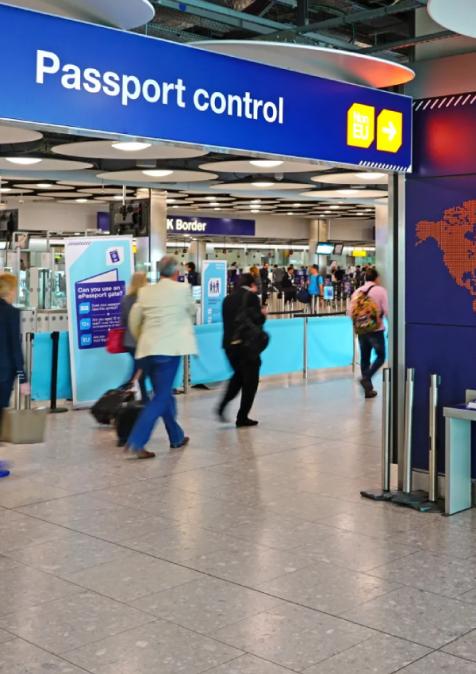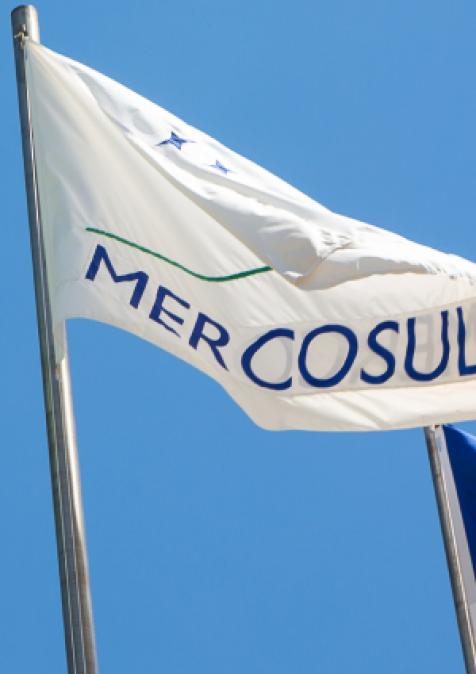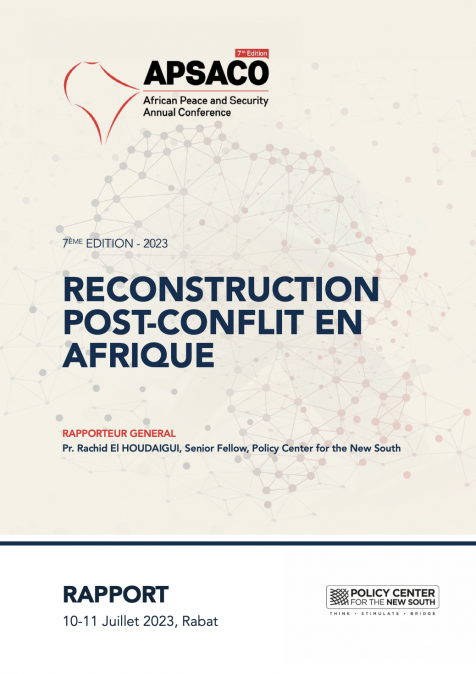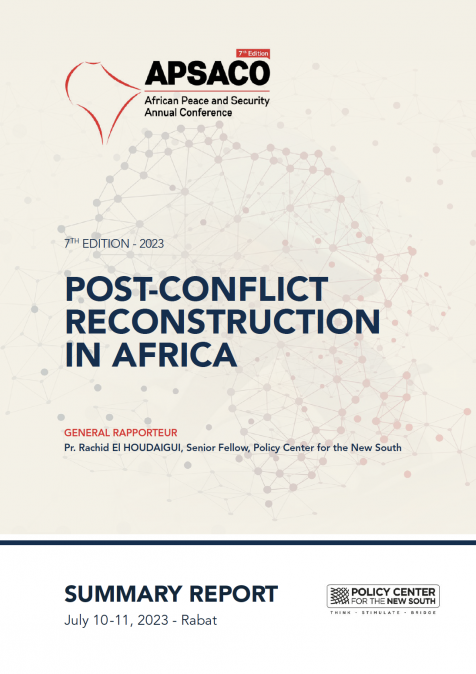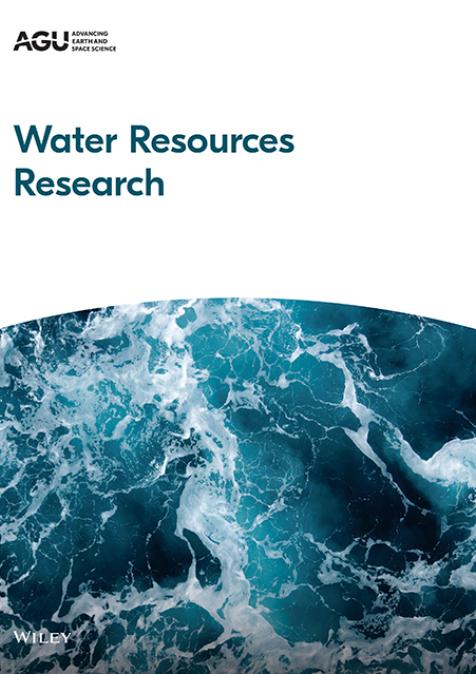Publications /
Opinion
“As the world continues to fracture into different blocs, a new world order is in the making,” observes ambassador Len Ishmael, Senior Fellow of the Policy Center for the New South, in her Policy Paper ‘The New South in a Multipolar World; Multi-Alignment or Fence Sitting?’ (October 23, 2023). The major economies of the G7 remain at the helm, but “whereas the G7 share of global GDP was two thirds in 1990, today it is closer to one-third. In the meantime, the countries of the New South are adding more muscle to the G20, and an array of non-western groupings [is] forging a new identity: The New South. Will that be a moment or a momentum?” she asks.
“Time will tell,” is her answer. But, she says, “it is hard to dismiss the sense that change in the international structure is happening, greater multipolarity crafted by middle powers is evident, and The New South is very much part of this new chapter.” Dr. Ishmael, author of many books, including on the EU-African relationship, confirms that “the renewed interest of all major powers in securing support and partnerships with countries of the Global South is shown by the spate of recent African engagements with world leaders, including those of the U.S., Russia, China, and the EU, the invitation to Brazil, India, Turkey, South Africa, and Saudi Arabia to attend the G7 Copenhagen summit (June 2023) as observers, recent comments by U.S. President Biden indicating an openness to discuss UN Security Council reform, G20 enlargement to include the [African Union], and the flurry of shuttle diplomacy by Western powers to Africa, Latin America, the Caribbean, and Asia.” This, writes ambassador Ishmael, “carries a significance which transcends the Ukrainian conflict.”
The writing on the wall leaves no doubt: “The West seeks to shore up supplies of critical raw materials (CRM) in the race with China in the transition to green energy, high tech, and artificial intelligence. But these encounters are also designed to woo countries away from China and Russia during this period of heightened tensions.”
The BRICS—Brazil, Russia, India, China, and South Africa—does not claim to be a competitor to the G7 or G20, but when the original founders announced they would be willing to enlarge their group, announcing new members at their meeting in South Africa on August 24, 2023, more than 40 nations showed an interest, and 22 asked officially to join BRICS. For Navdeep Suri, Distinguished Fellow of the Observer Research Foundation in India (Global Memo, August 31, 2023) this is “clearly a symptom of a deeper malaise.” The West’s “proclivity to display unilateral finance sanctions, abuse international payments mechanisms, renege on climate finance commitments, accord scant respect for food security and health imperatives of the Global South during the pandemic are only some of the elements responsible for the growing disenchantment with the prevailing international system.”
In her paper, Dr Ishmael wrote “the West is slowly facing the reality that Western interests are no longer de facto those of the rest of the world, and that the risk of losing global power and influence is real. Recent moves by Saudi Arabia to keep oil prices high ... by continuing to reduce supplies in tandem with Russia, underscores this reality, showing the determination even by a long-term Western ally to champion its own financial interests over those of traditional allies. Like South Africa, India, and many others, Saudi Arabia is unabashedly multi-aligned in pursuit of its domestic interests.”
A Critical Moment
When the BRICS named in August its new members—an almost bankrupt Argentina, oil-rich powers Saudi Arabia and the United Arab Emirates, the rather isolated Iran, impoverished Ethiopia, and economically stressed Egypt—‘Global Perspectives’ (August 31, 2023) published by the Council of Councils, which gathers opinion from global experts on major international developments, asked in a headline: “Seeking an Alternate World Order?” The fifteenth BRICS Summit, suggests Navdeep Suri, “has sent a strong signal that the post-World War II order should accept the multipolar reality and change with the time”.
The recent rupee-designated oil transaction between India and the UAE is not merely a swipe at the petrodollar arrangement which has prevailed since 1973, argues Suri, “but it is also a signal that the world’s major commodity exporters and importers can try to reduce their dependence on the dollar.” If not a new world order, suggests Suri, the BRICS expansion is “certainly an attempt at an alternative world order, one with a more sympathetic for the developing many versus the developed few.”
“A critical moment in the creation of a new world order may have just occurred,” writes Steven Gruzd, head of the African Governance and Diplomacy Program, South African Institute of International Affairs, in a paper edited for ‘Global Memo’. “After horse trading and arm twisting, the BRICS is now the BRICS plus six and the new members will add their voices to advocating for a more equitable global governance system, reforming the UN Security Council, and increasing influence for the Global South.”
“In addition the steady stream of summits involving countries of the Global South,” observed Dr Ishmael in her Policy Paper, BRICS, the G20, the Association of Southeast Asian Nations, the Shanghai Cooperation Organization, and the recently concluded two day G77+China South Summit, held in Cuba, “also point to a growing multipolarity, and diffusion of world power and a coming together of the Global South around an agenda of core interests notwithstanding their differences. There is a growing realization that the increasing weight of these countries can no longer be ignored.”
Considering this political and economic weight, the increasing power of the Global South, a vision of an independent, democratic nation named Palestine is no longer a mirage. It could be a reality if the powers to be give peace a chance and are willing to create, but not destroy or oppress, a nation without respected borders a capital surrounded by barbed wire and mines, and which is suffering from bombs and missiles that pulverize dreams.





